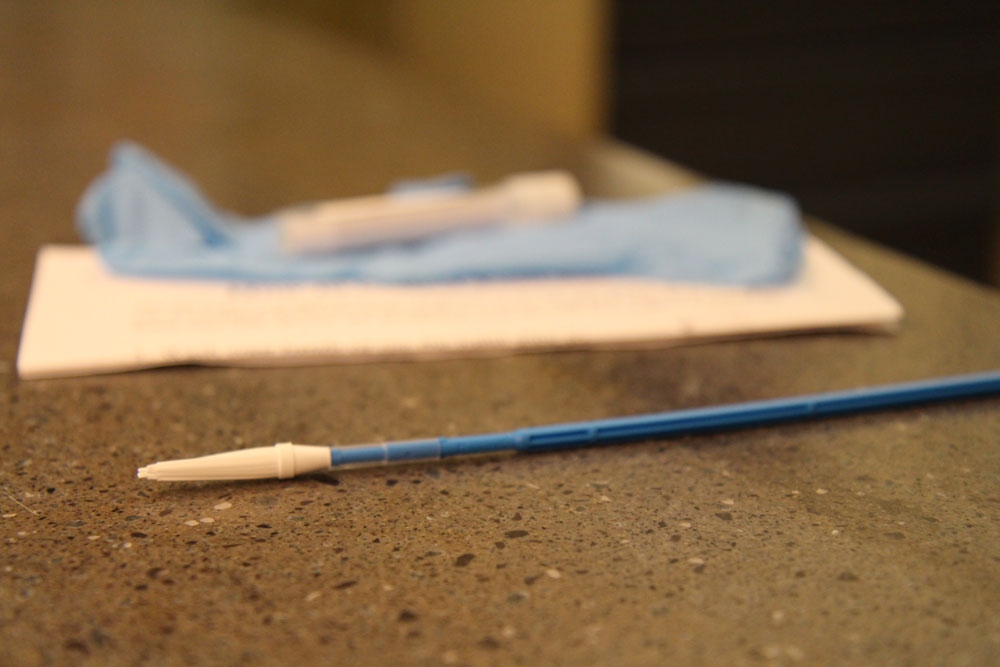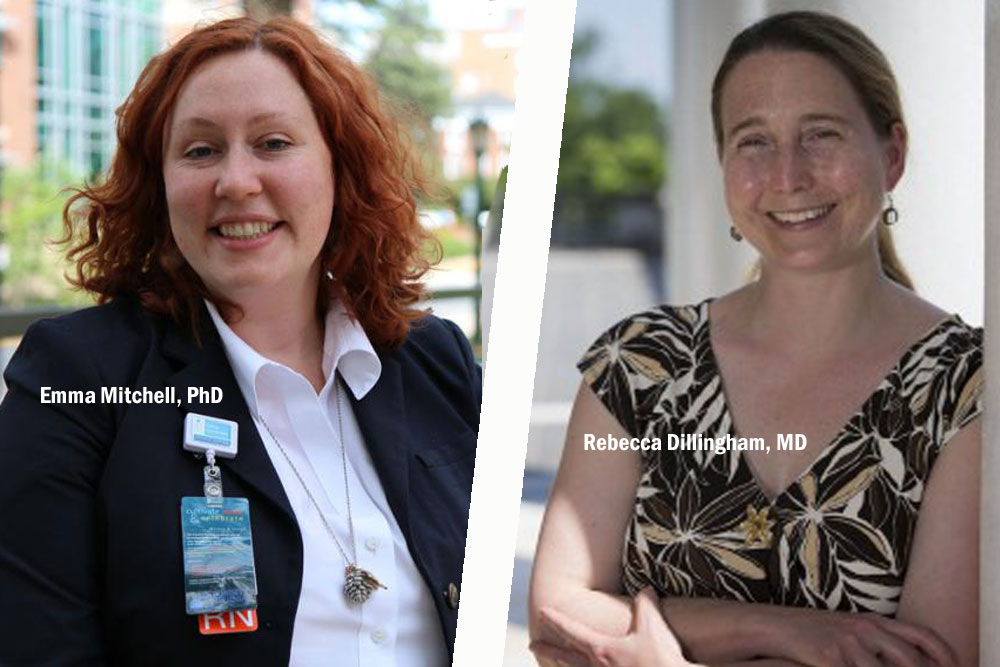On the Road ... With a Novel Cervical Cancer Screening and Solution

 Nursing professor and Global Initiatives director Emma Mitchell has long been interested in topics related to HPV, women's and community health. With colleagues, she's delved into why HPV vaccine rates among Virginia girls are so low, studied the novel use of a self-collection HPV test for women in rural Virginia, and tested the feasibility and acceptability of telemedicine and high-tech colposcopes with CNL and BSN students in Central America.
Nursing professor and Global Initiatives director Emma Mitchell has long been interested in topics related to HPV, women's and community health. With colleagues, she's delved into why HPV vaccine rates among Virginia girls are so low, studied the novel use of a self-collection HPV test for women in rural Virginia, and tested the feasibility and acceptability of telemedicine and high-tech colposcopes with CNL and BSN students in Central America.
Now, with Center for Global Health director Becca Dillingham, MD, she's earned a seed grant to expand the international work that aims to increase access to cervical cancer prevention in rural Nicaragua in a culturally tailored approach.
Caused by high-risk strains of Human Papillomavirus (HPV), cervical cancer is almost entirely preventable, yet it remains prevalent, and people die of it more often in low to moderate income countries. In some areas of Central America, rates of HPV infection are 7 times higher than rates in the U.S. And mortality from HPV infections, which result in cervical cancer, are high. Though Haiti has Central America's highest incidence of HPV, Nicaragua has the highest mortality from the disease.

35%
Though 63% of women in Central and South American have had a Pap test, just 35% of Nicaraguan women have (PRB.org).
With the grant, and based on Mitchell's long-term collaboration with colleagues at Movicancer, an NGO fighting cervical cancer in Nicaragua, she and Dillingham will:
- expand HPV testing as primary screening in a culturally appropriate way using self-collection tests
- explore the feasibility of telecolposcopy exams in partnership with the Karen S. Rheuban Center for Telehealth at UVA;
- develop an app/communication intervention to decrease lost-to-follow-up rates and improve patient navigation;
- and analyze the national cervical cancer registry in partnership with Movicancer, an NGO fighting cancer in Central and Latin American countries.
###
